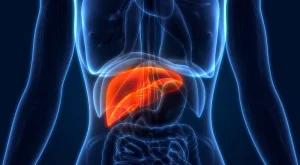
Healthy impacts of apricot. Apricots are vibrant, tasty, and incredibly nutrient-dense fruits. Apricots may improve intestinal health on the inside and skin health on the outside. Armenian plums, or apricots, are stone fruits. They are round, golden, and resemble a peach in miniature, but they have the same tartness as purple plums. They are incredibly nutrient-dense and offer numerous health advantages, including better digestion and eye health.
HEALTHY IMPACTS OF APRICOT
Because of their high nutrient content, which includes potassium, fiber, and vitamins A and C, apricots have a number of health advantages. They are well known for helping digestion, improving skin health, and fostering eye health. Apricots are also a strong source of antioxidants, which may lower the risk of chronic diseases and help shield the body from cell damage
1. Packed with plant

high concentration of active plant chemicals, flavonoids, and phenols are among the active plant compounds that are abundant in apricots. These substances serve as defense molecules for the plant and have a similar protective effect on us, bolstering our heart and immune systems and maybe shielding us from some types of cancer.
2. Could protect and enhance vision

A rich carotenoid content is indicated by the fruit’s deep yellow or occasionally orange flesh; the darker the color, the more carotenoid-rich the variety. Among its many functions in the body, carotenoids—plant-based sources of vitamin A—protect our eyes and postpone the beginning of age-related macular degeneration.
3. encourage healthy skin
Apricots are also good for skin health because they are high in carotenoids, which help defend against the aging effects of environmental factors including pollution, smoking, and UV light. A higher intake from fruits like apricots and tomatoes may be linked to benefits in skin brightness, suppleness, and elasticity, according to studies assessing the many forms of carotenoids, including the colorless ones, phytoene and phytofluene.
4. preserve the transit of the digestive system
Meanwhile, rich in dietary fiber, apricots support healthy gastric transit and help ward off constipation. Apricots, peaches, and plums are among the fruits that contain the sugar sorbitol, which is advised for the treatment of constipation.
5. promote intestinal health

Apricots are likely to affect our gut microbiota since they are high in sorbitol, fiber, and plant defense compounds. Although there is currently no data to support these findings in humans, research indicates that apricots, even dried ones, may alter the bacterial makeup of the gut in a positive way. assist the heart
6. One of the most crucial dietary components for heart health is fruit, which is another key aspect of nutrition. Heart disease can be effectively prevented by eating apricots, which are high in antioxidant nutrients and beneficial plant chemicals.
7. assist in controlling hypertension
Potassium, a mineral that functions as an electrolyte in the body and works in tandem with salt to control fluid balance and muscle contractions, can be found in apricots. Because of this, consuming enough potassium is crucial for avoiding bloating and preserving a good blood pressure level.
8. Guard the liver

Although, a large portion of the research to yet has been conducted using animal models, apricots may protect the liver. Research indicates that apricots’ carotenoids and vitamin content, which are antioxidants, may offer some protection against the harm caused by alcohol and other pollutants.
Summary
A tasty fruit that is high in vitamins, fiber, and antioxidants is the apricot. Among their many advantages are better gut, skin, and eye health. Apricots, whether fresh or dried, are simple to incorporate into main courses, salads, and yogurt. Apricots are a terrific option to switch up your diet if you’re accustomed to eating peaches and plums.